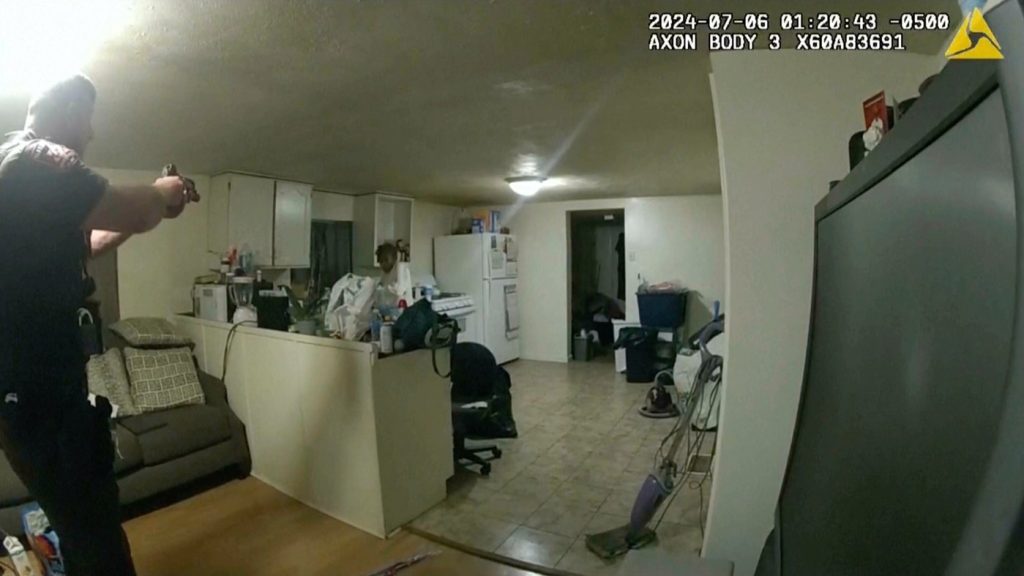SPRINGFIELD, Ill. (AP) — The murder trial of Sean Grayson, a 31-year-old Illinois sheriff’s deputy, is set to commence on Monday. Grayson faces charges related to the killing of 36-year-old Sonya Massey, a Black woman who was shot in her Springfield home on July 6, 2024, after seeking police assistance regarding a suspected prowler.
The incident unfolded when Grayson responded to a 911 call reporting a potential threat. Upon arriving at Massey’s residence, he confronted her about a pan of hot water that he had instructed her to remove from the stove. Body camera footage reveals that Grayson entered the home, where he and Massey exchanged comments, during which she humorously mentioned, “I rebuke you in the name of Jesus.” Grayson interpreted her statement as a threat against his life. In a tense situation that escalated rapidly, Grayson drew his firearm, ordering Massey to drop the pot. Despite her compliance, confusion led to her picking the pan back up, prompting Grayson to shoot her once, striking Massey just below her left eye.
The high-profile nature of the case prompted Judge Ryan Cadagin to relocate the trial from Springfield to Peoria and surrounding areas due to the intense public scrutiny and media attention. Grayson, who is white, has pleaded not guilty to the charges of first-degree murder, aggravated battery with a firearm, and official misconduct. If convicted of first-degree murder, he faces a sentence ranging from 45 years to life in prison.
Massey’s death has sparked significant discussions surrounding the issue of law enforcement shootings of Black individuals within their homes, further leading to legislative changes in Illinois. The state has introduced new laws aimed at enhancing transparency regarding the backgrounds of individuals applying for law enforcement positions. The impetus for these reforms arose from concerns raised during the investigation into Grayson’s prior history, which included multiple arrests and evaluations from past employers indicating potential behavioral issues.
Prior to the shooting, Massey had been experiencing significant mental health difficulties and had returned from a 30-day inpatient program shortly before the incident. Relevant records indicate that her family had made three 911 calls within days leading up to the shooting, with her mother explicitly stating concerns about her daughter undergoing a mental breakdown. Unfortunately, Grayson was unaware of these critical details at the time of responding, illustrating a gap in communication and response protocols for police handling distress situations.
Grayson, who had been employed with the Sangamon County Sheriff’s Department for only 14 months at the time of the incident, was terminated within days post-shooting and subsequently arrested. His employment history raised alarms among Massey’s family and the public, questioning how he had been hired despite a contentious background, including a DUI and other disciplinary concerns during previous law enforcement positions. Illinois Governor J.B. Pritzker later signed a law requiring police candidates to authorize the release of their full employment and personal history, aiming at preventing similar circumstances from recurring in the future.
The trial, which is expected to last beyond next week, embodies ongoing societal debates regarding policing practices, mental health awareness, and the accountability of law enforcement in minority communities. As the proceedings unfold, both the prosecution and defense will present their arguments and evidence to the jurors, who are being drawn from a different locale to mitigate biases fueled by local sentiments surrounding the case.










